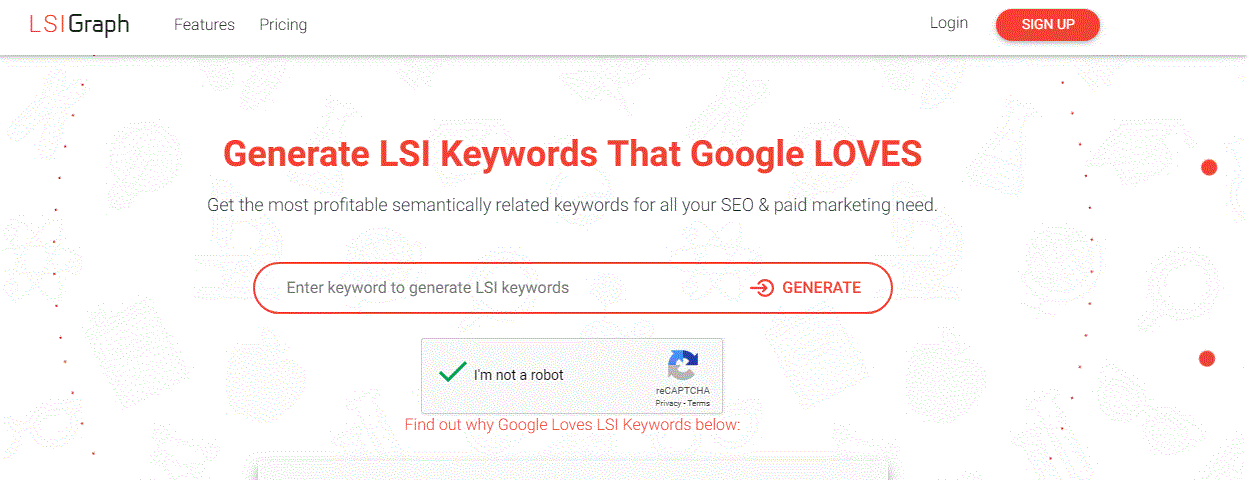Robin Khokhar
Robin Khokhar is an SEO specialist who mostly writes on SEO. Thus sharing tips and tricks related to SEO, WordPress, blogging, and digital marketing, and related topics.
What is LSI or Latent Semantic Indexing? If you are in the field of SEO then you must be familiar with the...

Image Credits: pixabay
What is LSI or Latent Semantic Indexing?
If you are in the field of SEO then you must be familiar with the term LSI. But if you are new to SEO then this post can help you boost your ranking. The use of the LSI keywords can help you get more organic traffic and your website or blog will end up with loads of traffic.
Latent Semantic Indexing (LSI) is the term related to SEO and keyword density. Before understanding the LSI, you must be familiar with the word “keyword density” so first check this post of mine “Ideal Keyword Density for SEO.” You must know that if you want to rank on Google’s first page then you should use LSI keywords along with the targeted keyword to avoid keyword stuffing and spamming of the keyword.
As I stated, LSI is another term that can be used to make SEO Better. The term LSI can also be known for using similar or synonym words instead of using the Keyword again and again. When Google did not use the term Latent Semantic Indexing, people were concentrating more on keyword density. It was like the more the keyword appeared on the page; the more the chance of getting to the first position. For example, if one website has a keyword appearing ten times on the page the other has to put the keyword 11 times to beat that Website and Rank on the first of the search engines.
Those things now have changed and these days Google updates its search engines and algorithms from time to time. Google is now smarter and uses LSI, which means Stuffing the Keywords will harm the sites and will drag them down in the SERPs. So, instead of doing keyword stuffing, the original content will help a lot more. Let me explain to you with the help of an example.
Google uses LSI (latent semantic indexing) to check that the word being searched is actually about what like (place, company, food, or animal). For example – Suppose you Search for a word let’s say “Windows” Then, how Google will differentiate whether Windows is searched for wooden stuff, whether Windows is an Operating system or related to any other thing? Google uses Latent semantic indexing keywords to check what the searched word is about, if the words like operating system, installing windows, software system, and wooden structure appear in the article then it gets a lot easier for a search engine to determine what the word is about “Windows OS” and will show the related terms for the same. For all these queries Google uses an algorithm named RankBrain to display better results on the Google SERPs.
Read:
All you need to know about Artificial intelligence.
The search engines are always looking for the most natural and relevant-looking content. Google only ranks that content that is not Spammy and overdone. As LSI is not any difficult thing, there is some simple logic that you can use for better ranking. Matt Cutts who was the Team leader of the Google Webspam team Says you should write content in such a way that people should link you back from their websites as a good resource for their articles. what he meant was writing content that is informative, and useful to both humans and Google bots, as the content which is Good with the LSI keyword will be ranked by Google but if your content is being naturally linked by humans or the browser then the chances of getting ranked on Google SERPs increases by 90%.
So, the kind of content which will be ranked must be:
There are many ways of finding latent semantic indexing keywords. I will be telling all I know. Finding LSI keywords is similar to finding the longtail keywords, So, I will also recommend you to check my post on how to find longtail keywords. But to find some perfect synonyms you should check the below tools.
Google is one of the easiest ways to get LSI Keywords. Here, you only need to search a keyword, and the rest of the things will be done by Google.
You can also view the same LSI Keywords in the “search related to” results down at the Google SERPs.

Everyone searches on the Google keyword planner before doing anything. You can also find the same here. If you are a regular user of Google Keyword Planner then you must know that Google suggests some keywords based on the type of search conducted by you. Those LSI keywords are the best ones to use in your articles or posts for better ranking.
It is another fantastic tool for getting the best synonyms instead of the focus keyword. I use it too. The reason I use it is that it provides many semantic words for the focus keyword and returns me the synonyms in no time.

Now that you have learned what is LSI? It’s time to learn how to use LSI? A page or Post may consist of many things like heading tags, Title, highlighted text, paragraph, and anchor text.
And you can use them in every part of the post or page of a website. You can use it in:
Because the technique of using LSI keywords looks natural to Google and this is the thing that helps in up-ranking.
I have always used it to get a better ranking and reputation for my site. I use these even in the Meta title and Meta description for organic searches.
Suggested:
Why is Organic traffic the best source of natural Traffic?
Off-page is still important for the up-ranking of a website. And while making links, we can also use LSI keywords. We can use similar or synonyms of the keyword while doing social bookmarking, commenting on blogs, and using other link-building techniques. As all modern Webmasters use Latent Semantic Indexing in Off-Page and On-Page SEO, so we must use it too.
Recommend:
How can you increase the domain authority of your site?
Hi, this blog is very useful. I have learned a lot about LSI keyword. this was clearly explained about LSI keyword. keep posting.
I’ve heard a lot about LSI but this blog post really explains a lot to me.
I’ve learnt a lot. Thank you Robin for this awesome blog post.
I am new to this platform with my blog. The term LSI is new to me. But, you have taught a lot here.
You are welcome chetan.
Thanks for the LSI tip. Never knew such tools exists. Let me give ’em a try.